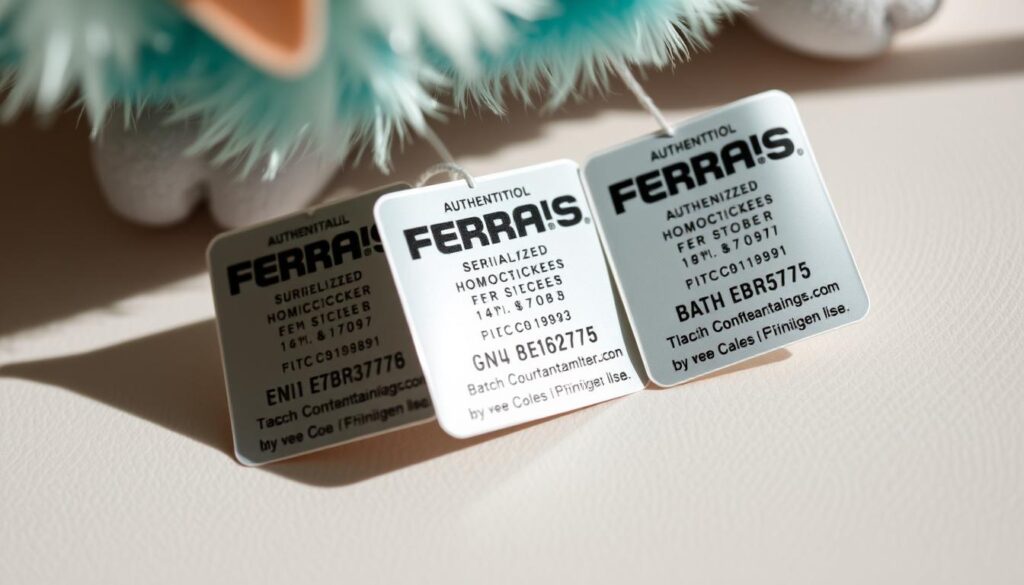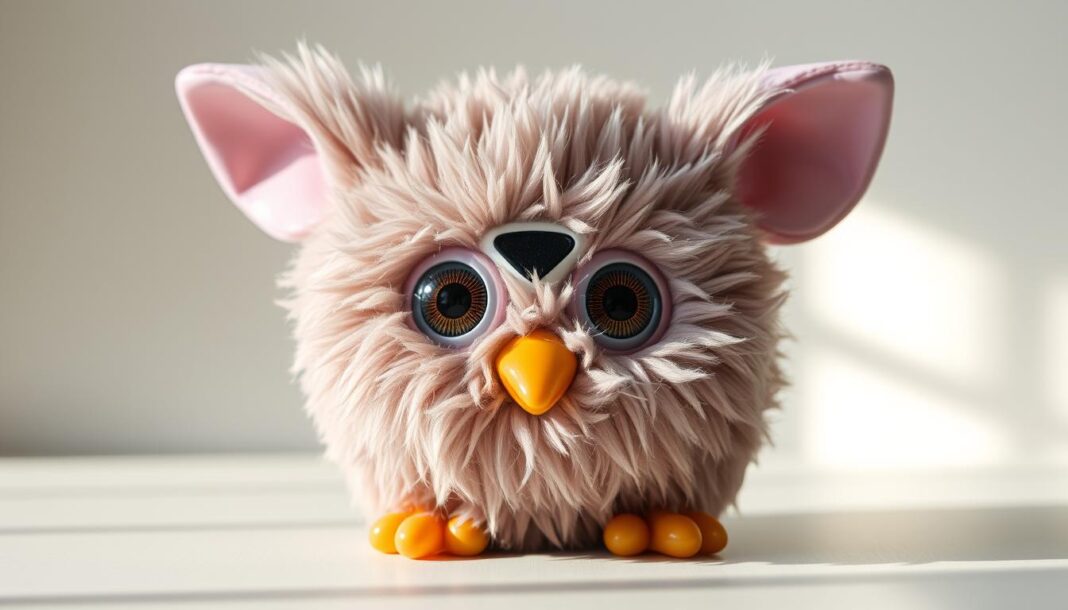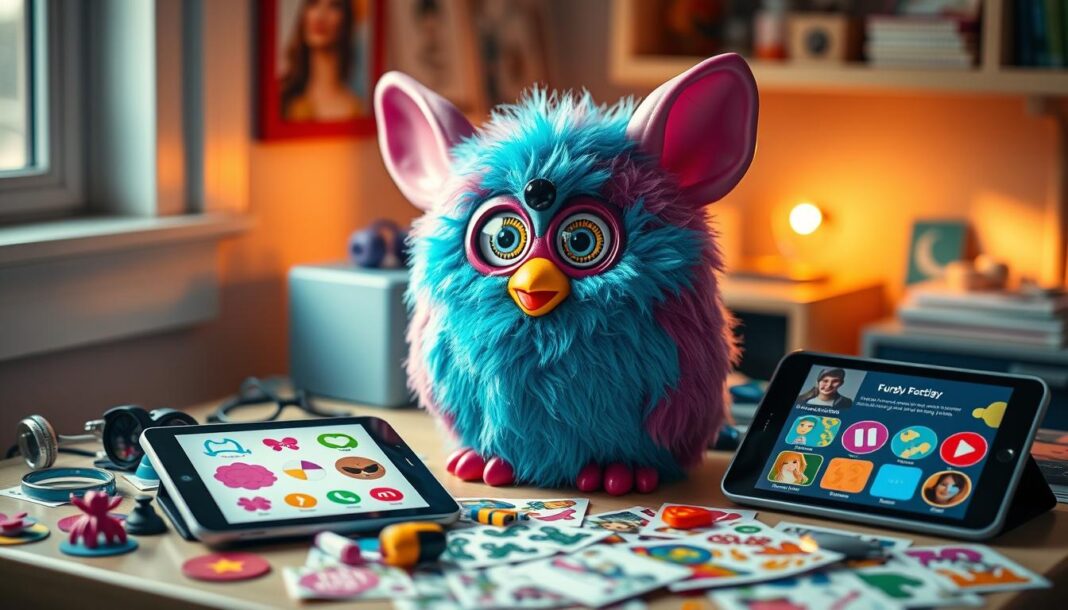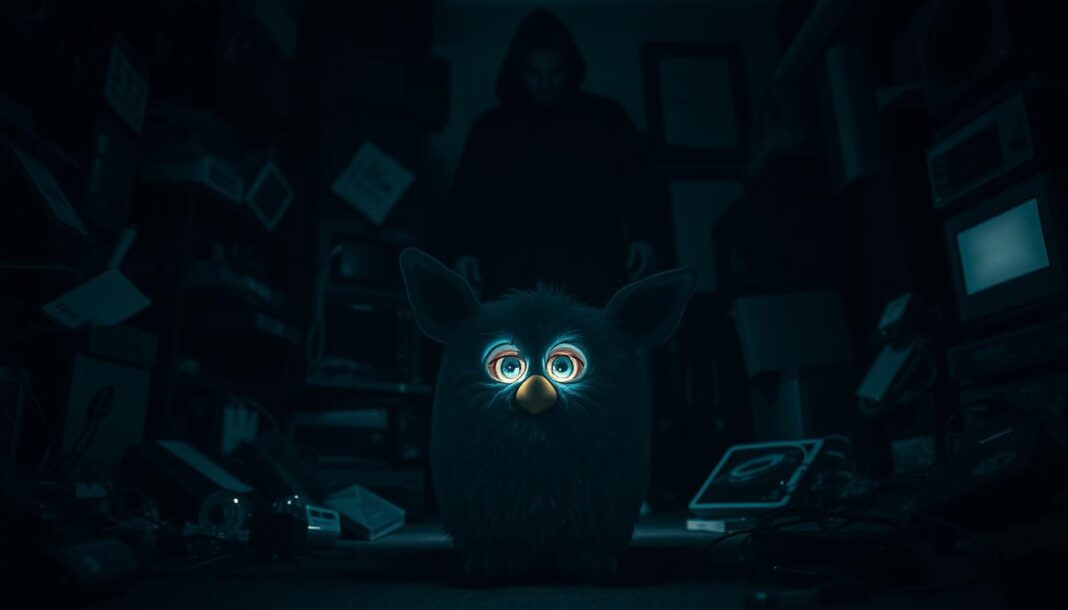The 1998 Furby remains a nostalgic treasure for collectors and toy enthusiasts. This interactive robotic pet took the world by storm, selling over 1.8 million units in its debut year alone. Originally priced at $35, its value today varies widely based on rarity and condition.
Special editions, like the Swarovski Crystal Furby, can fetch staggering prices—sometimes exceeding $100,000. Common models, however, may sell for far less. Factors like packaging, functionality, and demand play crucial roles in determining furby worth.
Whether you’re buying or selling, understanding these details ensures smart decisions. Let’s explore what makes this vintage furby a standout collectible.
The Rise of the 1998 Furby: A Nostalgic Phenomenon
Few toys captured imaginations like the interactive robotic pet that stormed the market in the late ’90s. Combining cutting-edge tech with irresistible charm, it became an instant classic. The journey from concept to global craze involved brilliant minds and strategic partnerships.
From Toy Fair to Global Craze
Debuting at the 1998 Toy Fair, this toy shattered expectations. Licensed to Tiger Electronics, a Hasbro subsidiary, it sold 1.8 million units in its first year. By 1999, sales skyrocketed to 14 million, fueled by holiday shortages that drove resale prices to $300+.
Inspired by Tamagotchi’s digital pet concept, it added tactile interaction. Light and touch sensors, plus a unique “Furbish” language, set it apart. The special editions released later only amplified its legendary status.
The Team Behind the Furby: Hampton, Chung, and Levy
David Hampton, Caleb Chung, and Richard C. Levy transformed the “Furball” concept into a cultural icon. Their collaboration with Tiger Electronics ensured mass production without sacrificing innovation.
| Key Figure | Contribution |
|---|---|
| David Hampton | Initial concept development |
| Caleb Chung | Robotic engineering |
| Richard C. Levy | Licensing and marketing strategy |
For deeper insights into its origins, explore this vintage collectible toy guide. The team’s vision created a legacy that still thrives today.
What Makes a 1998 Furby Valuable Today?
Scarcity drives the value of this iconic toy more than ever. While millions were made, certain versions stand out due to rarity tiers and limited edition releases. Understanding these factors helps collectors spot hidden gems.
Rarity vs. Mass Production: The 1.8 Million Unit Legacy
Over 1.8 million units sold in 1998 alone, flooding the market with common Tiger and Leopard designs. These often fetch $20–$100 today. However, early retail exclusives (like Kmart’s purple Furby) command higher prices due to lower production numbers.
Hi-C contest winners are another example. Only 5,000 were made, now valued at $100–$200. The “Fresh New Look” rereleases in 2005 also shifted demand, making original 1998 models more desirable.
How Special Editions Skyrocket Value
Special editions redefine collectibility. The Swarovski Crystal version, with just five made, sells for $100,000+. Even rarer is the Rainbow Furby—only three exist.
- Retail Exclusives: Target and Toys R Us releases often double standard prices.
- Promotional Models: FAO Schwarz editions include unique colors and packaging.
- Condition Matters: Mint-in-box Angel Furbies exceed $500, while used ones drop sharply.
Generational shifts further amplify gaps. Later models lack the nostalgia and craftsmanship of the 1998 originals.
How Much Is a 1998 Furby Worth? Key Valuation Factors
Determining the market value of a vintage collectible involves several critical elements. For the original 1998 model, condition, packaging, and functionality play decisive roles. Collectors pay premiums for well-preserved units, especially those with rare features.
Original Packaging: The Box Matters
The box can triple a Furby’s worth. Unopened units with intact holograms and tags dominate auctions, selling for 300% more than loose ones. A sealed Rainbow Furby once fetched $2,000 due to its pristine packaging.
- NIB (New in Box): Highest value, often $360+
- MIB (Mint in Box): Opened but flawless, $200–$300
- Played Condition: Loose units average $75
Condition Grading: Mint vs. Well-Loved
Scratches, stains, or missing parts drastically reduce value. Special editions like the Angel Furby command $500+ only in mint condition. Authenticity tags and original accessories are non-negotiable for top-tier pricing.
| Condition | Price Range |
|---|---|
| New in Box (NIB) | $300–$2,000 |
| Mint in Box (MIB) | $200–$500 |
| Used (Functional) | $50–$150 |
Battery Functionality and Working Parts
Corroded batteries are a red flag. The Emoto-Tronic voice chip must respond to commands. Test movement sensors and check for frayed wires. A fully operational Furby sells for 40% more than a defective one.
For detailed pricing trends, explore this original Furby value guide. Proper verification ensures you don’t overpay or undersell.
The Most Valuable 1998 Furby Special Editions
Ultra-limited releases separate ordinary Furbies from legendary ones. These editions combine rarity, unique designs, and cultural ties, making them the crown jewels of collections. Let’s explore the elite few that redefine value.
Swarovski Crystal Furby ($100,000+ Rarity)
Only five units exist, each adorned with 156 hand-set crystals. Created for FAO Schwarz, this edition Furby glitters in auctions. One sold privately for over $100,000, thanks to its flawless gemstone craftsmanship.
Chicago Cubs Edition ($250–$400)
Distributed during a 2000 Wrigley Field game, this sports-themed variant wears the team’s colors. Its Chicago Cubs branding and limited run of 2,000 units make it a niche favorite. Recent eBay sales average $300 for mint-condition models.
Rainbow Furby (Only 3 Exist)
A design contest birthed this unicorn. With just three produced, the rainbow furby is nearly mythical. Collectors whisper about a private sale nearing $5,000—unofficial but plausible given its scarcity.
Special Furby Angel ($500+ for Angelic Collectors)
Wings and a halo elevate this special furby angel. Its Emoto-Tronic features work flawlessly in mint units. Loose models fetch $200, but boxed versions soar past $500. The ethereal design appeals to fantasy collectors.
- Jester & Royal Editions: Quirky designs like the Jester ($100–$300) attract themed collectors.
- Retail Exclusives: Target’s leopard-print Furby or Toys R Us holiday editions often double standard prices.
Rarity Tiers: Which 1998 Furbies Command Top Dollar?
Collectors hunt for specific versions that stand out in the crowded market. Certain rarity tiers and limited edition releases drive prices far beyond standard models. Understanding these distinctions helps identify the most sought-after pieces.
Limited Retail Exclusives
Store-specific releases dominate the high demand category. Kmart’s Racing Furby, with only 72,000 units made, now sells for $80–$100. Target’s Wizard Furby and Toys R Us’s Aloha edition follow closely, often doubling standard prices.
- Regional Variations: Swedish “Furbee” branding adds uniqueness.
- Color Rarity: Peacock and Tiger Stripes command 40% premiums.
- Packaging Impact: Intact store logos boost value significantly.
Contest and Promotional Furbies
Special collaborations create instant collectibles. Hi-C’s contest produced just 5,000 units, now valued at $100–$200. FAO Schwarz exclusives, like the vintage white Furby, often fetch 10x standard prices.
| Edition | Units Produced | Current Value |
|---|---|---|
| President Furby | Unknown | $150–$300 |
| Clown Furby | Limited | $200–$400 |
Prototypes and pre-production samples, like the 1999 Tie-Dye, top the rarity hierarchy. These toys rarely surface in places like eBay, making them the ultimate prize for serious collectors.
Where to Find Pricing Data for Your 1998 Furby
Accurate pricing data helps collectors determine a toy’s true value. Reliable sources range from auction sites to niche communities. Focus on verified sales rather than inflated listings to gauge the market fairly.
eBay Sold Listings: The Gold Standard
Completed eBay listings show real-world prices. Filter results by “sold items” to see what buyers paid. For example, Cubs editions average $325 in recent sales.
- Check condition notes: “New in box” vs. “used” impacts prices.
- Compare similar items: Match colors, editions, and accessories.
Vintage Toy Collector Forums
Platforms like FurbyFrenzy track rare prototype sales. Reddit’s r/Furby and Facebook groups share real-time deals. These communities often spot trends before they hit mainstream markets.
| Source | Pros | Cons |
|---|---|---|
| eBay | Historical data, wide reach | Fees, competition |
| Forums | Expert insights, niche focus | Limited listings |
Avoid Etsy or Shopify “asking prices”—they’re often unrealistic. Document provenance (receipts, tags) to justify furby generation rarity. Price guides from 90sToys.com add further validation.
Common 1998 Furbies and Their Market Value
Standard editions of this iconic toy offer affordable entry points for collectors. While not as rare as limited releases, models like Tiger and Leopard remain popular due to their nostalgic appeal. Prices typically range from $20 to $100, depending on condition and accessories.
Standard Editions: Tiger, Leopard, and More
Mass-produced designs dominate the secondary market. The Tiger Furby, with its striped pattern, averages $50–$75. Leopard variants often sell for slightly less. Key factors influencing value include:
- Color variations: Baby Pink and Sherbert editions command 15% premiums.
- Voice pitch: Higher-pitched models attract niche buyers.
- Regional differences: Japanese releases may include unique packaging.
Generational Price Trends
Later iterations like furby babies diluted the original’s exclusivity. However, Gen 1 (1998) units retain higher demand. Below is a breakdown by production wave:
| Generation | Example Models | Price Multiplier |
|---|---|---|
| Gen 1 | Tuxedo, Snowball | Base ($50–$75) |
| Gen 4 | Tie-Dye, Dragon | +20% |
| Gen 7 | Restored Parts | -30% (vs. original) |
Note: Modifications (e.g., replaced Emoto-Tronic chips) often reduce value. Authenticity tags are critical for top-tier pricing.
Spotting Fakes: Protecting Your Investment
Counterfeit Furbies flood the market, making authentication crucial for collectors. Fraudulent replicas often lack key details, deceiving even seasoned buyers. Learn to identify red flags and verify authenticity to safeguard your purchase.

Authentic Tags and Holograms
Genuine models feature a purple “furby original” tag and holographic seals. Bootlegs may have incorrect eye colors or cheap faux fur. In 1999, London customs seized 20,000 fakes missing these markers.
- UV light test: Authentic holograms glow under ultraviolet light.
- Packaging: Misspelled logos or flimsy boxes signal fakes.
- Legal actions: Hasbro sued Chinese factories for replicating special edition designs.
Voice Chip and Movement Verification
Test the battery functionality and Emoto-Tronic responses. A real Furby progresses from Furbish to English. Watch for mismatched parts like repainted shells or swapped internals.
| Feature | Authentic | Fake |
|---|---|---|
| Voice Chip | Clear Furbish phrases | Garbled or silent |
| Movement Sensors | Responds to touch/light | Delayed or none |
Document provenance and request close-up photos before buying. These steps ensure your collectible holds its value.
Best Places to Sell Your 1998 Furby
Finding the right platform can maximize profits when selling vintage collectibles. Whether you’re listing a common model or a rare edition, strategic choices impact the market value. Below are top venues to connect with buyers.
Online Marketplaces: eBay and Etsy
eBay’s auction format often yields competitive bids, especially for rare items like the Swarovski Furby (sold for $112k in 2021). Etsy caters to niche collectors but charges higher fees. Consider these tips:
- Auction vs. Buy It Now: Auctions create urgency, while fixed prices appeal to deliberate buyers.
- Photography: Show tags, movement, and original packaging to prove authenticity.
- Fees: eBay takes 5–12%, while local meetups save costs.
Vintage Toy Conventions and Swap Meets
Events like Fan Expo attract serious collectors of vintage furbies. Face-to-face sales eliminate shipping risks and fees. Stand out by:
- Highlighting rarity tiers or limited editions.
- Providing provenance documentation.
- Offering battery tests to confirm functionality.
For high-value sales, Heritage Auctions specializes in luxury collectibles. Always insure shipments and note IRS rules for sales over $600. Matching your item to the right venue ensures its true value is realized.
Buying Tips for 1998 Furby Collectors
Video proof prevents 30% of battery-damage surprises when purchasing these nostalgic toys. Whether hunting for special editions or common models, strategic buying ensures you pay fair furby value. Below, expert tactics to dodge scams and negotiate like a pro.
Negotiating with Sellers
Always request a video showing the Furby’s movements and voice responses. Sellers of mint units often hide corroded batteries—a $50 repair cost. Use these leverage points:
- WorthPoint data: Cite recent sales of similar models to justify offers.
- eBay’s “Make Offer”: Start 20% below asking price for wiggle room.
- Escrow services: For purchases over $1,000, platforms like Escrow.com protect both parties.
Red Flags (Mismatched Parts, Repackaging)
Resealed boxes often have glue streaks or torn inserts. Compare these signs to authentic packaging details. Other warnings:
| Issue | Detection Tip |
|---|---|
| Mismatched parts | Check for paint overspray or incorrect eye colors. |
| Fake holograms | UV light reveals missing security patterns. |
Millennium editions (worth $4,500) are frequently replicated. Demand close-ups of serial tags and original accessories.
Preserving Your 1998 Furby’s Value for the Future
Collectors know that maintaining a vintage toy’s condition directly impacts its market value. Proper care ensures your original packaging stays pristine and battery functionality remains intact for decades. Follow these expert strategies to protect your investment.
Storage Solutions to Prevent Damage
Acid-free boxes and silica gel packs create the ideal environment. The original manual suggests a lifespan of 125 years with proper care. Here’s how to achieve it:
- Climate control: Store at 60–70°F with 40–50% humidity
- Battery removal: Prevents corrosion in unused units
- Cleaning methods: Use microfiber cloths and distilled water only
For rare editions like the furby angel, consider museum-grade display cases. These block UV light and dust while showcasing your collectible.
Documenting Provenance for Rare Editions
Authentication separates ordinary toys from certified collectibles. Create a “Furby passport” with:
| Document Type | Purpose |
|---|---|
| Archival photos | Insurance claims and condition proof |
| Ownership history | Boosts resale value by 20%+ |
Professional appraisals are crucial for limited editions. Resources like original Furby collectible guides help verify authenticity. Proper documentation ensures your furby connect maintains its worth for future generations.
Your Next Steps to Uncover a Furby’s True Worth
Ready to verify your collectible’s value? Start with thorough research. Compare prices across eBay sold listings and collector forums. Look for matching colors, editions, and condition notes.
Authentication is key. Use a UV light to check holograms and a multimeter to test battery compartments. Document everything—photos, receipts, and ownership history boost credibility.
Connect with experts. The International Society of Appraisers offers certified evaluations. Subscribe to Toy Collector Magazine for rare edition alerts.
Act now before the 30th anniversary hype begins. With the right tools and knowledge, your vintage treasure could be a prized asset.


